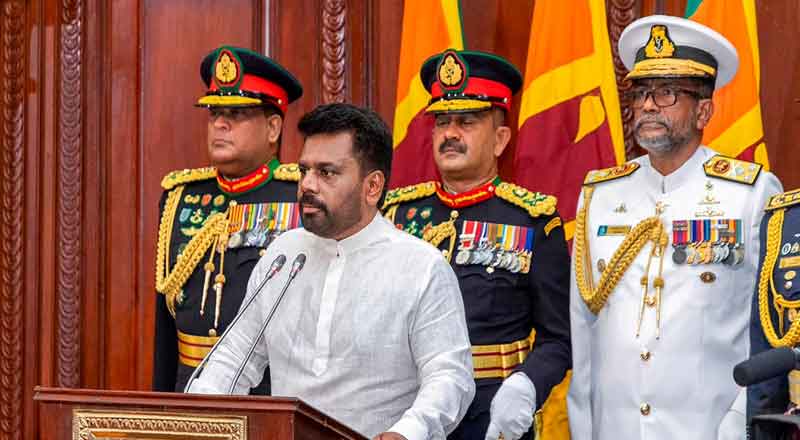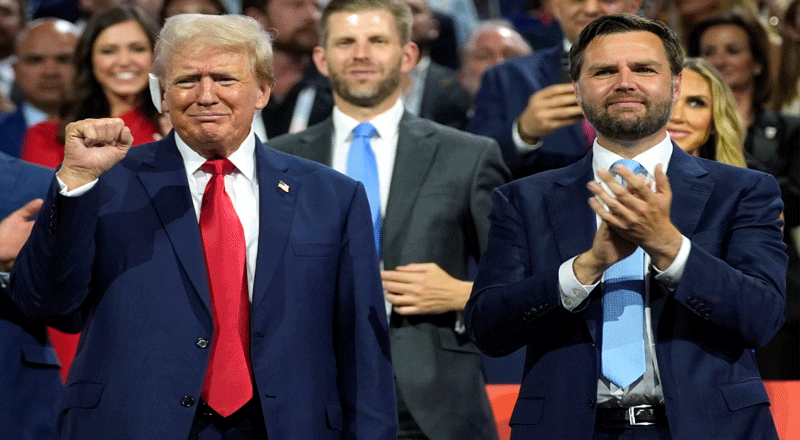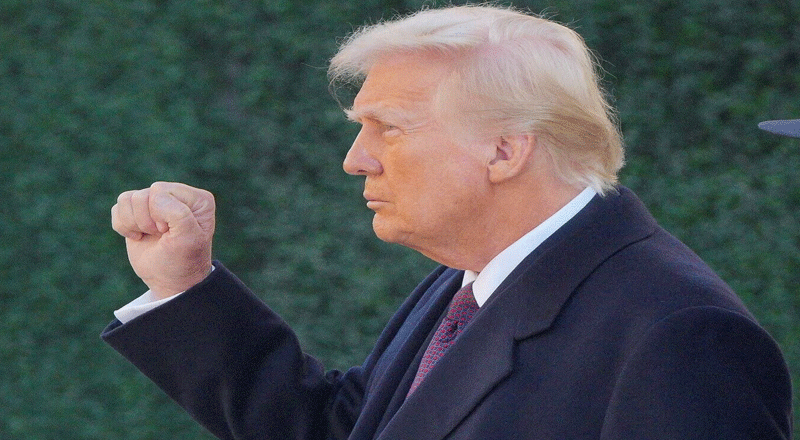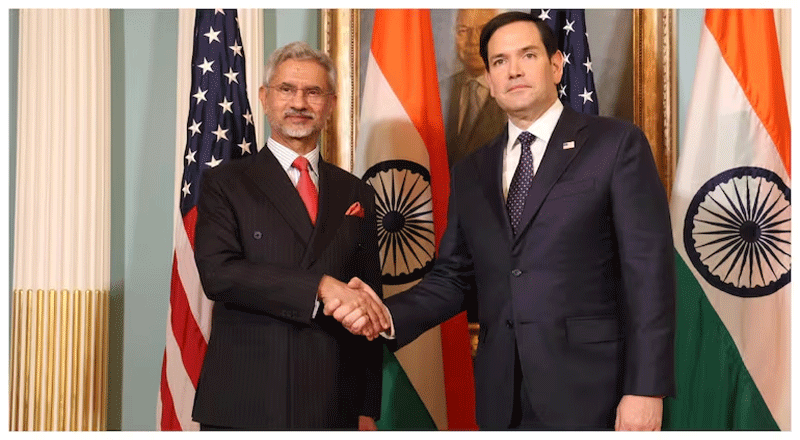As Anura Kumara Dissanayake ascends to the presidency of Sri Lanka, India faces a critical juncture in its diplomatic and strategic relations with its southern neighbor. Dissanayake’s leadership comes at a time of severe economic turmoil and deep societal unrest in Sri Lanka, with implications that stretch beyond its borders. His Marxist ideology, coupled with a history of close ties to China, could pose significant challenges for India, making it imperative for New Delhi to navigate this complex scenario with deft diplomacy. This article analyzes the potential impact of Dissanayake’s presidency on India’s geopolitical interests, economic ties, and security concerns.
Geopolitical Challenge: Navigating the China Factor
One of the most pressing issues for India under Dissanayake’s presidency will be the evolving geopolitical dynamics in the Indian Ocean region. Sri Lanka’s strategic location has always placed it at the center of power struggles between India and China, and Dissanayake’s past as a Marxist with anti-India sentiments raises concerns about a potential tilt towards Beijing. China’s growing influence in Sri Lanka, particularly through its Belt and Road Initiative (BRI) and investments in infrastructure projects like the Hambantota port, has already alarmed India.
Under Dissanayake, Sri Lanka could further deepen its ties with China, thus enhancing Beijing’s foothold in the Indian Ocean. This scenario would present a direct challenge to India’s strategic interests, as it risks encirclement by Chinese influence in South Asia. With other regional powers like Bangladesh facing political unrest and Pakistan continuing its hostile stance, India must act swiftly to ensure that its influence in the region does not wane.
Dissanayake’s presidency, therefore, will test India’s ability to balance its relationships with its neighbors while countering China’s strategic advances. A renewed focus on diplomacy, alongside efforts to strengthen regional cooperation, will be essential for New Delhi to maintain its standing in South Asia and safeguard its maritime interests.
Economic Uncertainty: Securing India’s Investments
Sri Lanka’s economic crisis presents another significant challenge for India. Dissanayake’s Marxist-leaning economic policies, particularly his promise to renegotiate the terms of Sri Lanka’s International Monetary Fund (IMF) bailout, introduce a level of unpredictability that could impact India’s economic interests. During the crisis, India provided nearly $4 billion in financial assistance to Sri Lanka, including currency swaps, credit lines, and deferred loans. This support was instrumental in preventing a total economic collapse.
However, Dissanayake’s administration may introduce changes that could affect Sri Lanka’s debt policies, potentially altering repayment schedules and public spending. For India, this poses a diplomatic dilemma. On the one hand, New Delhi must ensure that its investments and financial assistance are protected; on the other, it must be cautious not to imposemanish harsh conditions on a struggling neighbor.
Moreover, India’s financial aid to Sri Lanka was not solely an economic gesture—it was also a strategic move to counterbalance China’s growing influence in the region. If Dissanayake’s policies lean heavily towards China, India’s efforts to maintain a foothold in Sri Lanka may be undermined. In this context, India must engage with Colombo diplomatically to ensure that its economic and strategic interests remain secure. A nuanced approach will be essential to supporting Sri Lanka’s recovery while maintaining India’s influence in the region.
The Tamil Question: Advocating for Sri Lanka’s Tamils
The unresolved grievances of Sri Lanka’s Tamil community add another layer of complexity to India’s relationship with Sri Lanka under Dissanayake’s presidency. The Tamil population in Sri Lanka has faced decades of marginalization, and their demands for greater political representation and autonomy have long been a sensitive issue in India-Sri Lanka relations. With a sizable Tamil population in India, particularly in Tamil Nadu, New Delhi has a vested interest in ensuring the well-being and rights of Sri Lanka’s Tamils.
Dissanayake’s leftist ideology, which emphasizes equitable resource distribution and social justice, offers a potential opportunity for addressing these grievances. However, given Sri Lanka’s pressing economic and political challenges, it remains uncertain whether Tamil issues will be prioritized in Dissanayake’s policy agenda. India must take a proactive role in advocating for the rights of the Tamil community, including pushing for the full implementation of the 13th Amendment to the Sri Lankan Constitution, which promises greater devolution of power to Tamil-majority regions.
Failure to address Tamil concerns could strain India-Sri Lanka relations and lead to unrest in Tamil Nadu, where there is strong public sentiment in favor of the Tamil cause. Diplomatic engagement with Dissanayake’s government will be crucial for India to ensure that the rights and dignity of the Tamil population are upheld.
Security Concerns: Ensuring Regional Stability
Dissanayake’s presidency also raises concerns about internal security in Sri Lanka and its potential spillover effects on regional stability. His political roots lie in the Janatha Vimukthi Peramuna (JVP), a Marxist group with a history of violent insurrections. While Dissanayake has distanced himself from the violent past of the JVP, the possibility of renewed militancy or social unrest under his administration cannot be ruled out.
For India, any instability in Sri Lanka poses direct security risks, particularly in the southern Indian states. Increased militancy or unrest in Sri Lanka could lead to cross-border security challenges, including the potential for refugee flows and heightened tensions along maritime borders. India must closely monitor Sri Lanka’s internal security situation and strengthen intelligence-sharing and security cooperation with Colombo to mitigate these risks.
In addition to security cooperation, India should also focus on regional peace-building initiatives. Engaging with other regional players, such as Bangladesh and the Maldives, to promote stability in South Asia will be critical in preventing any escalation of tensions in the Indian Ocean region.
A Diplomatic Balancing Act
Anura Kumara Dissanayake’s presidency presents India with a complex mix of challenges and opportunities. From navigating the geopolitical tensions with China to securing its economic interests and advocating for the rights of Sri Lanka’s Tamils, India’s diplomatic agility will be put to the test. The evolving political landscape in Sri Lanka under Dissanayake demands a calibrated, forward-looking approach from New Delhi.
As India seeks to balance its regional relationships, it must prioritize strategic engagement, economic cooperation, and security partnerships with Sri Lanka. Dissanayake’s presidency offers both risks and potential rewards for India, and how New Delhi navigates this critical period will shape its influence in the region for years to come. By adopting a proactive and nuanced strategy, India can ensure that its interests are safeguarded while contributing to Sri Lanka’s recovery and regional stability.
(With inputs from agencies)





